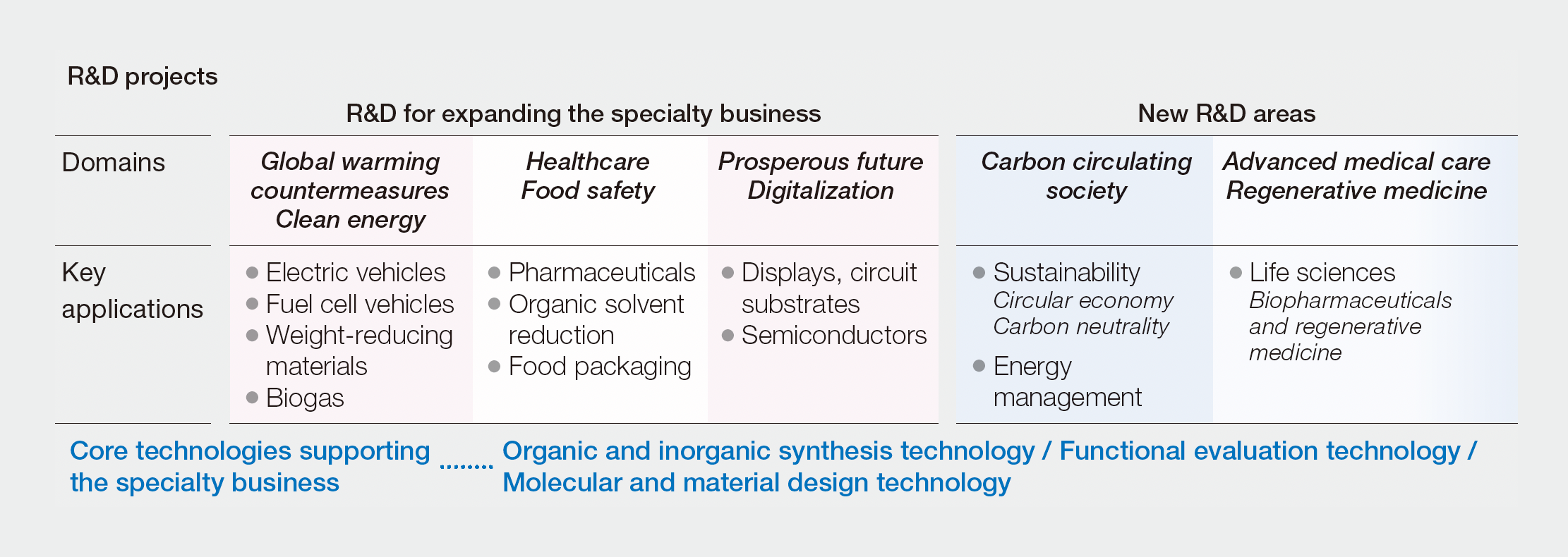Message






To Create
New Core Competencies
Executive Officer
Head of Research and Development Headquarters
In Charge of Development Division & Intellectual Property Department
Yoichi Yoshida
Our mission at UBE's Research and Development Headquarters is to create next-generation core competencies (such as differentiation technologies) that will drive UBE's future.
To achieve this mission, we continue to take on challenges in the field of technology.
In the midst of global competition, the hard challenges are supported by passionate colleagues with dreams of "changing tomorrow" and UBE's unique core technologies, cultivated through the efforts of our predecessors.
By sharing high-quality information, including mid- to long-term market needs and seeds information from academia and startups, using DX tools, we foster innovation and create the next generation of core competencies.
UBE leverages its unique "Molecular and Material Design Technology" to support its specialty businesses. To further deepen this technology, the Research and Development Headquarters utilizes advanced Material Informatics (MI) and computational chemistry to develop new functional materials. This approach accelerates the development of higher-performance and more sustainable materials, enhancing our competitiveness in the global market.
Research and Development Policy
The Research and Development Headquarters focuses on three key areas: sustainability, energy management, and life sciences, and is working on technology development through both backcasting and forecasting approaches.
Through backcasting from future social and environmental issues, we predict market needs, narrow down target markets and products, and use forecasting based on future market and technology trends learned from existing products to innovate existing core technologies and develop new products.
By combining backcasting and forecasting, we concentrate on "Creating New Core Competencies" that support sustainable growth.
To establish technologies that are the source of competitive advantage, we actively utilize open innovation, including participation in national projects, joint research with universities, and collaboration with startups, to acquire knowledge, technologies, and know-how.
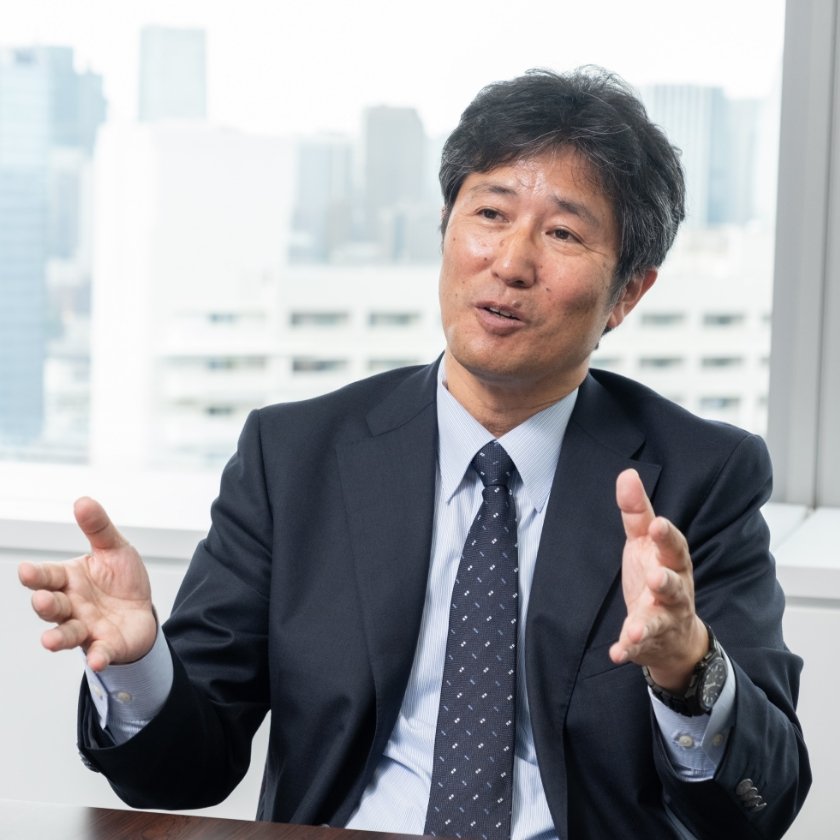
Concept of Building a Technology Development Pipeline
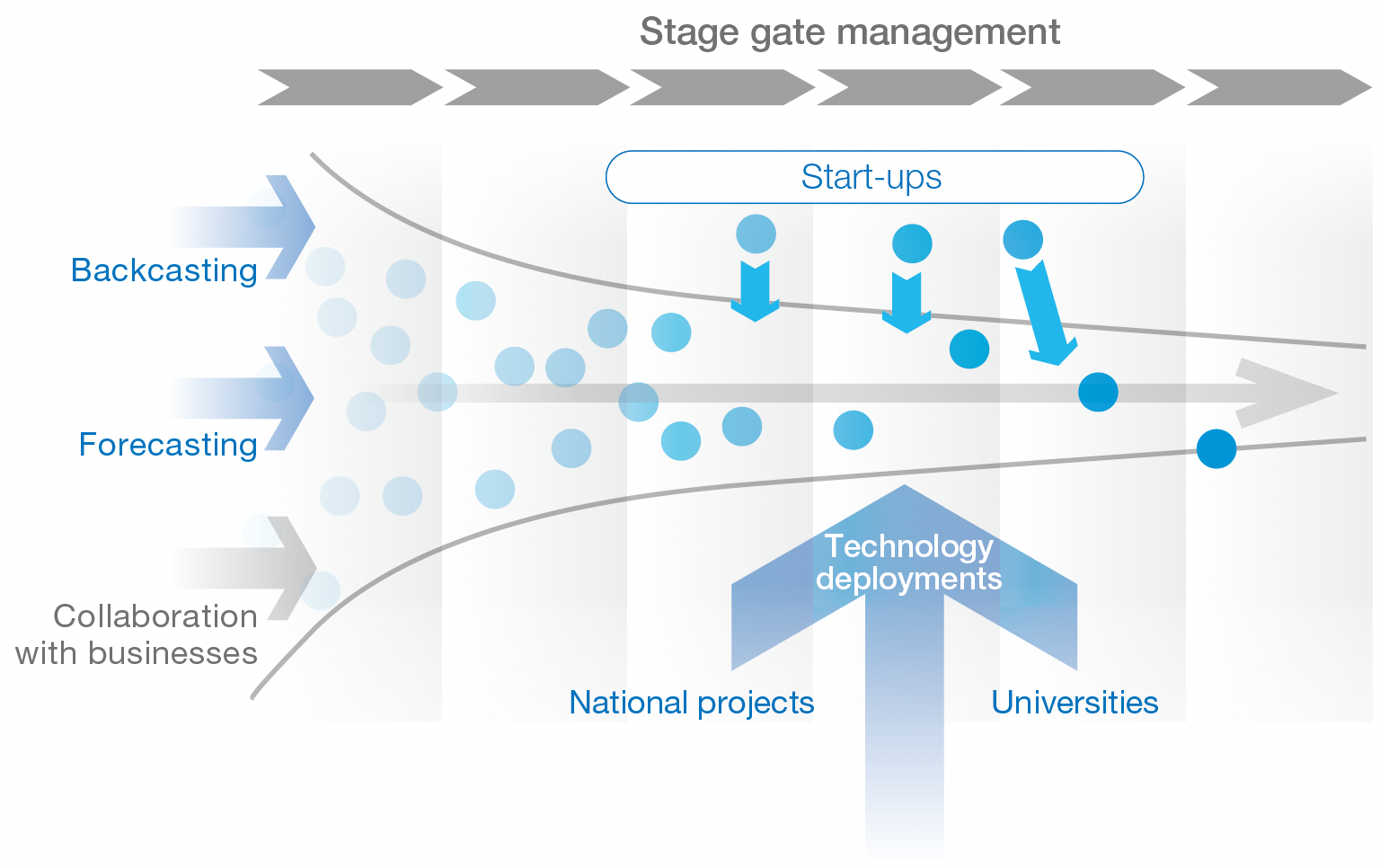
Research and Development for Creating Core Competencies
Polyimide Porous Membrane Cell Culture Substrate
The emergence of biopharmaceuticals produced using the "protein production capabilities" of biological entities such as cells and microorganisms has enabled the development of various medicines effective against previously untreatable diseases.
However, biopharmaceuticals produced through cell metabolism under various external environments are difficult to control in quality
and are often very expensive, posing a societal challenge.
UBE's independently developed polyimide porous membrane cell culture substrate offers stable long-term culture of animal cells,
providing an effective solution to these challenges.
To widely promote the utility of this substrate in the industry,
we began prototype sales of research cell culture kits and exhibitions in November 2023.
We are currently advancing joint development projects with multiple partners to maximize the potential of this substrate.
Polyimide Porous Membrane Cell Culture Substrate
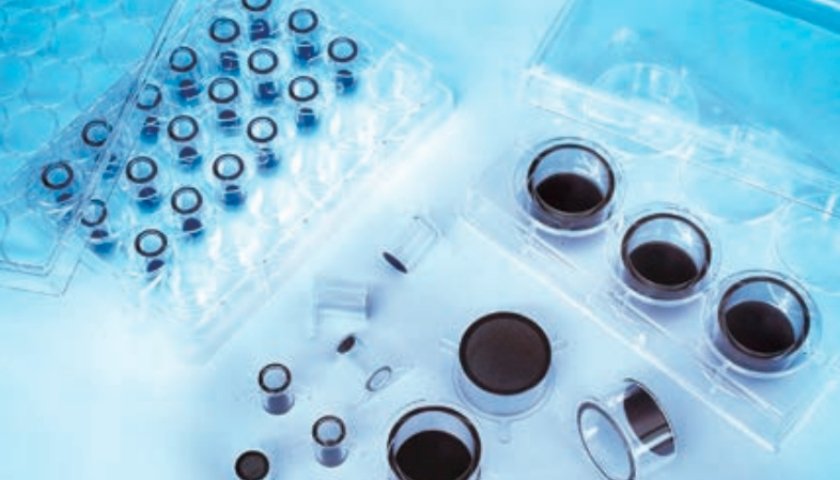
CO2 Electrolysis
The electrochemical conversion of CO2 is a promising option for achieving carbon neutrality
as it facilitates the effective use of renewable energy.
In the Moonshot Research and Development Program by the New Energy and Industrial Technology Development Organization (NEDO),
aiming to develop an "Innovative CO2 Large-Scale Resource Recycling System,"
a collaborative project between industry, academia, and government is advancing technology development
for an integrated system that captures and enriches diluted CO2 from the atmosphere,
electrochemically reduces it, and converts it into useful chemical raw materials such as ethylene.
In this project, UBE is leveraging the knowledge gained through its lithium-ion battery-related business
and research and development to develop electrode materials that efficiently reduce CO2.
As a result of the project, small-scale technology development has progressed smoothly,
meeting milestones such as selectivity and current density as planned.
From the 2024 fiscal year, we are also beginning to study the large-area scaling of electrodes for pilot demonstrations
and will continue advancing technology development with a view toward social implementation.
Conceptual Diagram of the Innovative CO2 Large-Scale Resource Recycling System
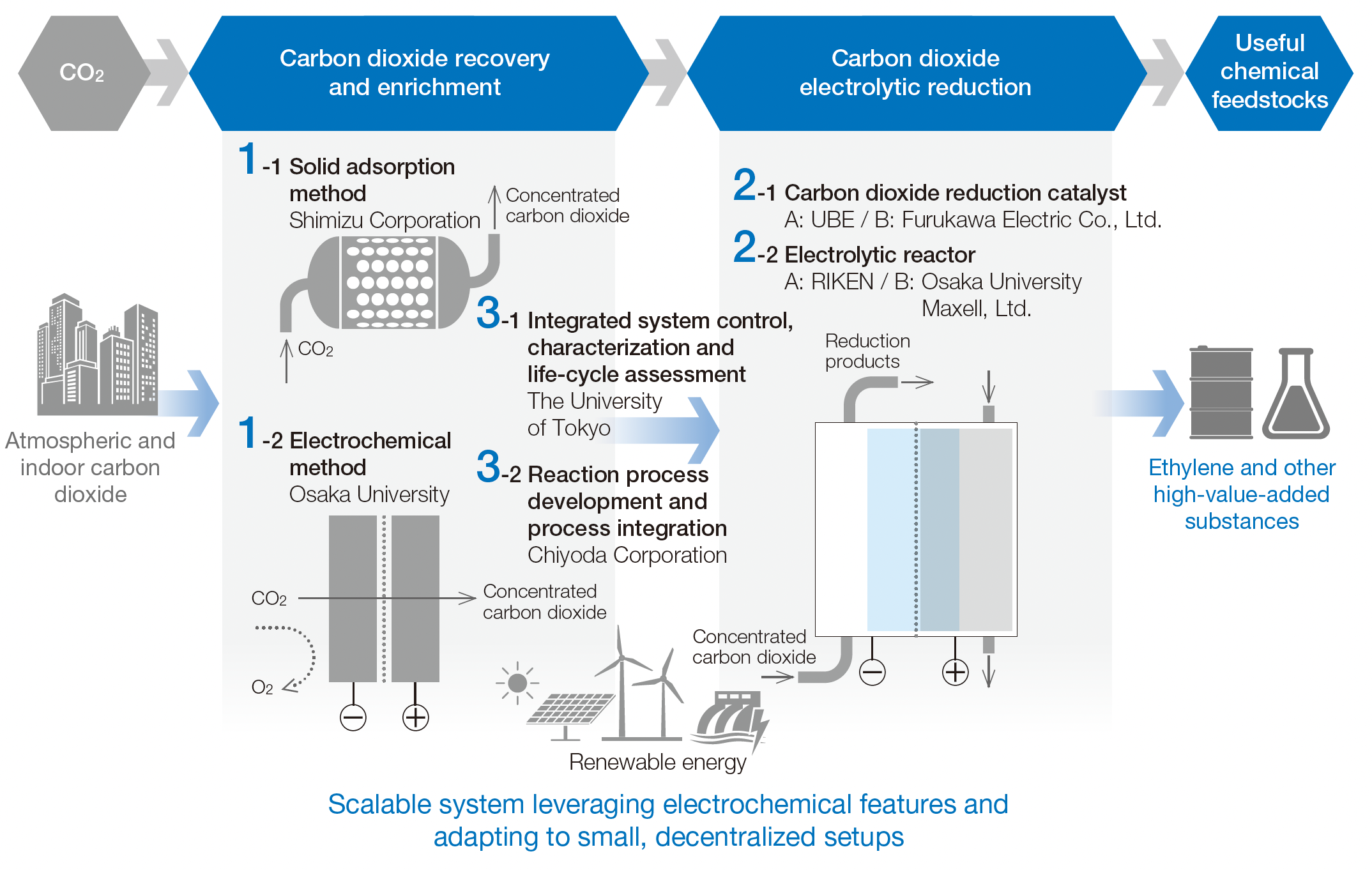
Research and Development Talent Driving Specialty Business Growth

Developing specialty products requires gathering insights into future societies and business environments, and proposing solutions using the collected information is key to specialty business growth. In 2023, to cultivate Research and Development talent capable of making such proposals, we provided basic education on marketing and Management of Technology (MOT)
to inspire ideas for new products.
Additionally, to incorporate an industrial perspective into current research and development themes,
we held technical exchange meetings that connected internal technical departments.
Furthermore, to broaden perspectives, we also sent employees to external opportunities
such as universities, academic societies, and venture companies.
We will continue to focus on developing Research and Development talent that drives specialty business growth
through more practical activities.
We aim to provide on-the-job training (OJT) through mutual learning within diverse teams, including talent who previously left UBE to run a venture company and those with experience in launching new products at other companies.
Additionally, we are considering opportunities for young employees to interact between overseas Research and Development bases and encouraging participation from foreign employees in the future.
Research and Development Themes
